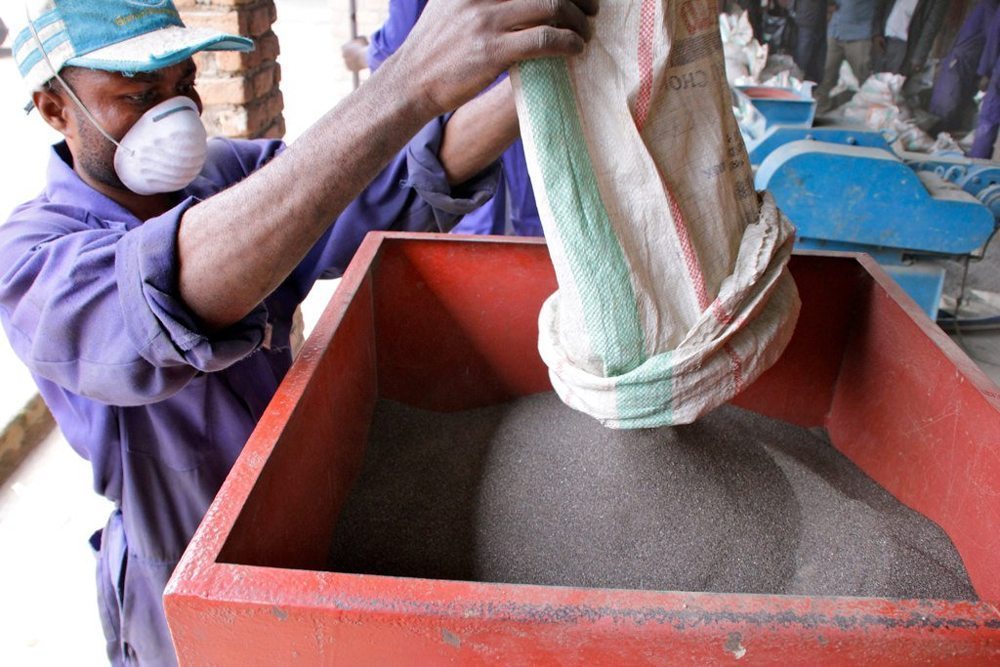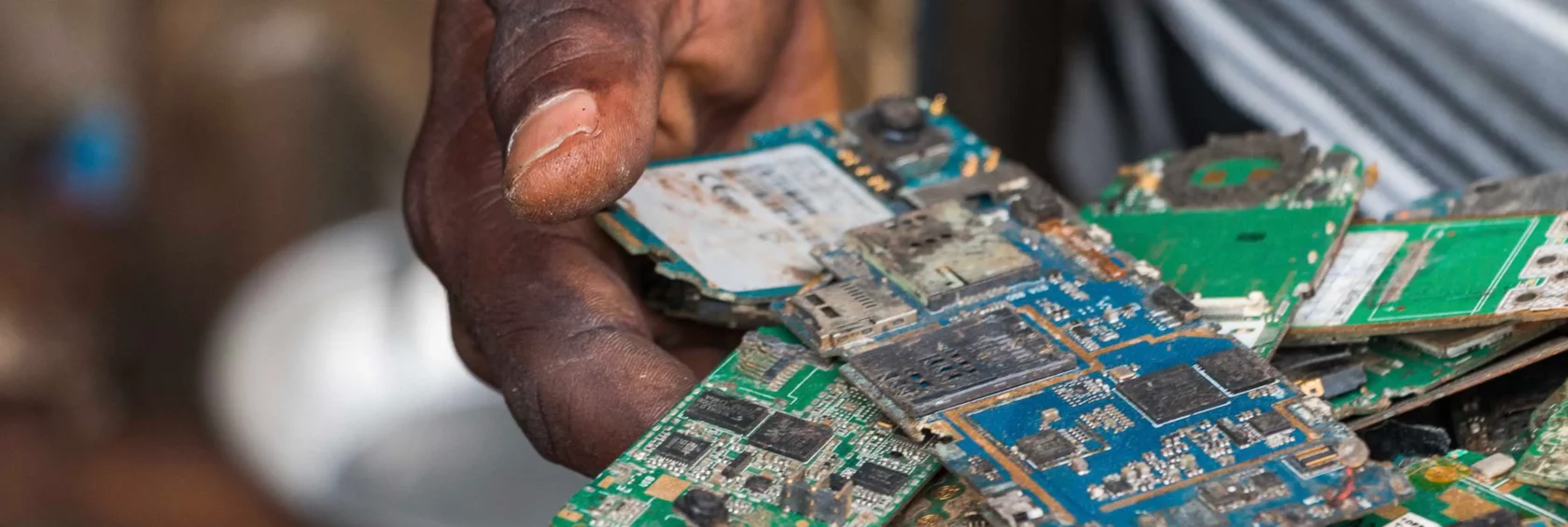Research spotlight: Studying the end of the tin life cycle
Long before we made a single phone, Fairphone was working to better understand and improve mineral supply chains. Many years and three phones later, we’re still focusing on our mission of driving important materials projects and pioneering research that has a positive impact on how materials are sourced, used and reused – improving both environmental factors and the lives of those working with these materials. One of our focus materials for improvements is tin.
As part of our goal to continually increase transparency and find areas where we can make the most impact, we commissioned two studies which examine this material at two opposite points of the supply chain: virgin tin mining in the Democratic Republic of the Congo (DRC), and the state of tin recycling in China.
For this study, Fairphone partnered with MacDermid Alpha and Anthesis. The goal of the research was to examine the main hotspots for tin recycling across the entire supply chain. The investigation looked specifically at China, which is the most important hub of electronics production, as well as the world’s largest consumer of tin – accounting for about half of global use. (Read the full paper here >>)

The start of the life cycle: A worker in the DRC pouring refined tin powder.
Over the course of the research, we considered every step of the supply chain where tin waste might be produced, from mining and smelting to electronics production and device recycling. At most of these four stages, the findings revealed that tin waste collection and recovery during the recycling process were far from optimized. At the early points in the supply chain, some of the biggest areas for improvement were related to social or environmental aspects. At the end of the supply chain (electronics recycling), it was clear that recovering tin was not a top priority, in part due to the low prices of virgin tin.
Only 30% of tin comes from recycled sources
The research project concluded by identifying and prioritizing potential interventions. For example, the report recommends aggregating tin recycling (currently spread out between multiple recyclers) to improve the economics of tin recovery. It also recommended further investment in the development of new separation technologies to make it easier to recover more tin from electronic devices, as well as improving recyclability through better product and component design. There is a need for further engagement across the globe of different projects in order to share best practices to improve efficiency in recycling and develop new reliable sources of recycled tin through investment and participation in take-back programs, education in new markets and certification.
Alpha Assembly has been working for years in delivering products containing recycling Tin that adheres to the highest environmental and social standards; we together make a call to the sector to continue demand for recycled tin as a tool for further improving the sustainability of electronics products. Brands/manufacturers should not only source from reliable and trustworthy sources but to make sure their waste also ends in formal channels. In this vision, we need to work together as well to make sure that the informal sector gets continuously formalized to achieve enough recycling tin availability while adhering to the best practices.
Fairphone, Alpha Assembly and Anthesis, hope to be able to shed some light into the difficult ‘business’ of recycling, to show the complexities behind it, but also to launch a call for all stakeholders involved to work on further integration and formalization of the supply of recycled tin.
To learn more about this, please join us in our podcast with Alpha assembly and Anthesis available on our channels >>



